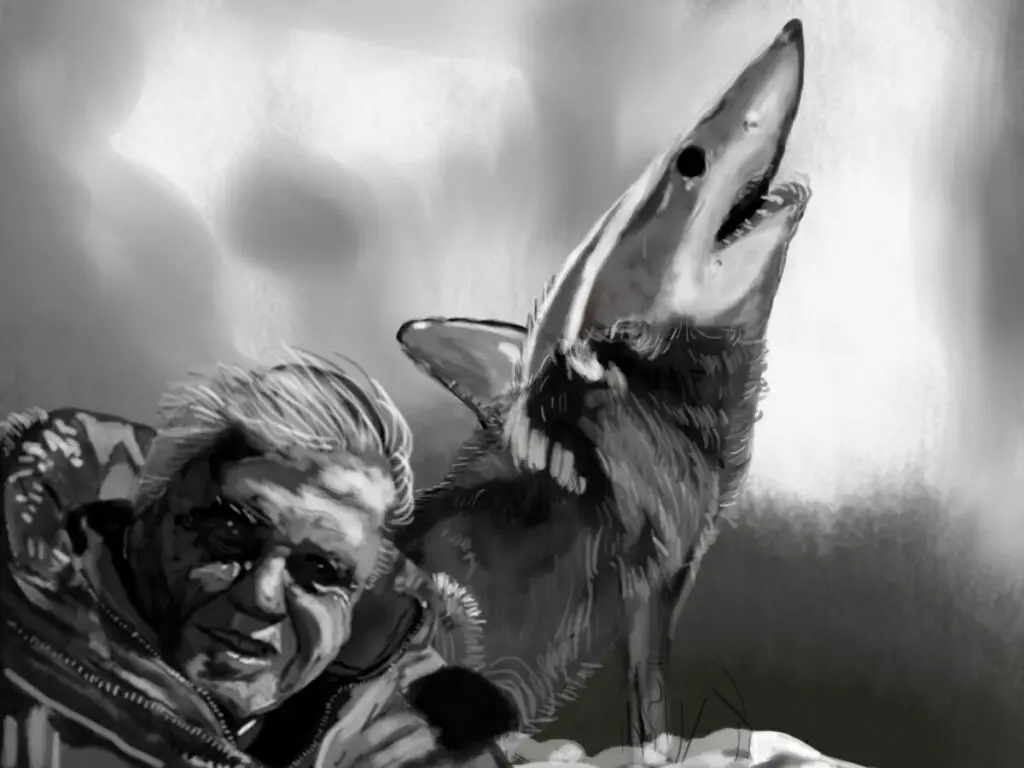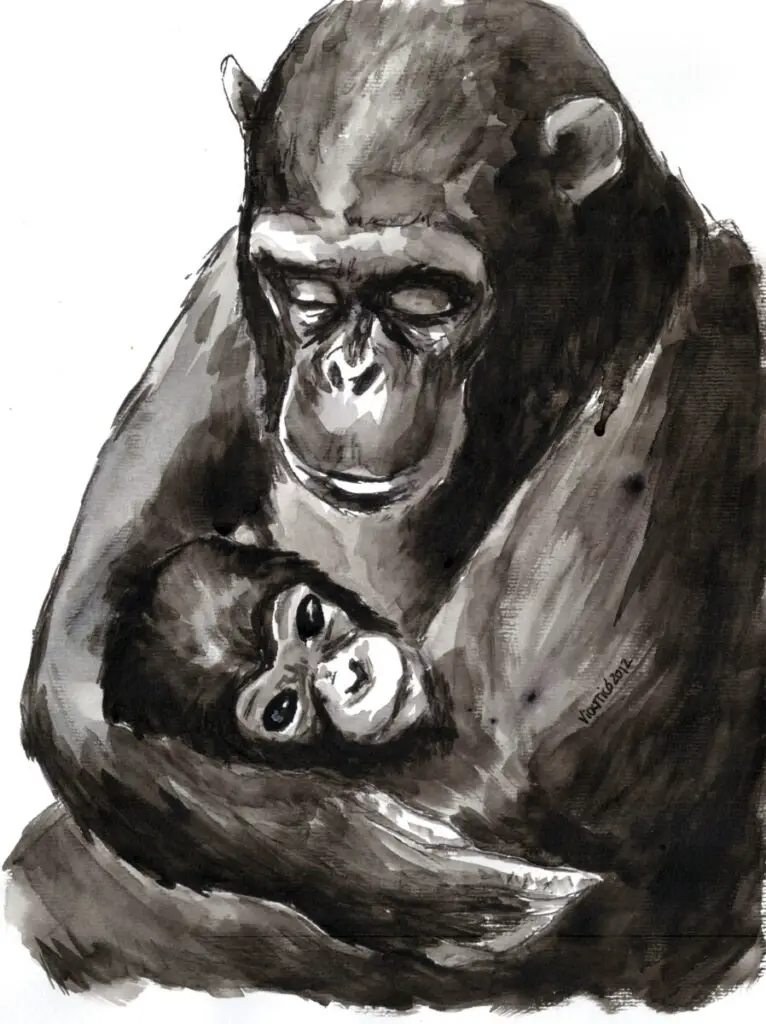|
Getting your Trinity Audio player ready...
|
The Earth is a miraculous and beautiful planet, and it’s up to us to protect it. For centuries, humans have taken advantage of the Earth’s resources without much thought for the future. 7 most famous environmentalists dedicated their lives to educating us about the dangers and what needs to be done to save the planet.
More and more people have come to recognise the critical importance of environmentalism. And many of the most famous environmentalists have dedicated their lives to preserving and restoring the Earth’s natural resources.
Those that have inspired action and make a positive impact on the planet deserve recognition. In our study of 7 most famous environmentalists, we celebrate the environmental champions. They are some of those who have dedicated their lives to making the planet a healthier, more sustainable place.
Rachel Carson (1907 – 1964)
Rachel Carson was an American marine biologist and author. Her ground-breaking book, Silent Springhttps://amzn.to/3nJySdc (1962), exposed the dangers of insecticides and helped to launch the modern environmental movement.
Carson was the first to draw attention to the risks posed by synthetic chemicals, such as DDT. She highlighted how they damage environments, and the health of humans and wildlife. Her work inspired the creation of the US Environmental Protection Agency. And she is considered the mother of the modern environmentalist movement.
Background
Rachel Carson was born in Springdale, Pennsylvania. She was an avid reader and nature lover from a young age. And she developed a passion for science and the outdoors that led her to an education in marine biology.
Carson studied at the Pennsylvania College for Women (now Chatham University), as well as the Woods Hole Marine Biological Laboratory. Later she received a doctorate of zoology from John Hopkins University in 1932.
Achievements
After completing her studies, Carson worked as a biologist for the United States Bureau of Fisheries (now the National Marine Fisheries Service). During this time, she wrote her first three books on marine life:
- Under the Sea-Wind (1941),
- The Sea Around Us (1952) and
- The Edge of the Sea (1955).
They were well-received by the public and her second book, The Sea Around Us, won the 1952 National Book Award for Nonfiction. Following the success, Carson resigned from the U.S. Bureau of Fisheries to focus on writing.
She wrote many articles aiming to educate the public before she published her most significant work, Silent Spring, in 1962. She was criticised by the chemical industry for her work, as it threatened their businesses. Undaunted, Carson used the novel to speak out against the disastrous effect chemical pesticides have on the environment.
Impact
Silent Spring was Rachel Carson’s most significant contribution to environmentalism. In it, she exposed the dangers of insecticides, such as DDT. The book sparked public outrage and led to a nationwide ban on a number of chemicals.
One of the earliest of the most famous environmentalists, Carson’s work also inspired the creation of the US Environmental Protection Agency in 1970 and ushered in a new era of environmental awareness. Silent Spring was instrumental in launching the modern environmental movement, which has since grown into a global phenomenon.
Wangari Maathai (1940 – 2011)
Wangari Maathai was a Kenyan political activist, author and the first female, African recipient of the Nobel Peace Prize.
She is best known for her work as the founder of the Green Belt Movement, an organisation that works to promote reforestation, women’s rights and environmental conservation across the African continent.
Background
Maathai was born in rural Nyeri County, Kenya to a family of farmers who encouraged her love of learning from an early age. She graduated with degrees in Biological Sciences from Mount St. Scholastica College (later Benedictine College) before studying at the University of Pittsburgh.
After receiving a Master’s degree, Maathai studied at the University of Nairobi and eventually taught as a professor at the university’s Veterinary Anatomy Department. She was also an active member of the National Council of Women of Kenya, acting as chair from 1981-1987.
Achievements
While serving on the National Council of Women of Kenya, Maathai proposed the idea of planting trees as a community-based initiative to combat deforestation and soil erosion. In 1977, she established the Green Belt Movement (GBM) – an organisation that works to conserve Kenya’s forests by planting trees throughout the country.
As part of this movement, she organised numerous tree-planting campaigns across Africa that were fuelled by local women’s groups, educating communities about reforestation’s importance. Through GBM, Maathai planted over 30 million trees across Africa – helping to create a healthier environment for all.
In 2004, her work was recognised with the Nobel Peace Prize – making her the first East African woman to receive the award. Maathai would continue to fight for a better world, co-chairing the Congo Basin Fund in 2007.
She authored four books:
- The Green Belt Movement,
- Unbowed: A Memoir,
- The Challenge for Africa and
- Replenishing the Earth.
Impact
Wangari Maathai’s efforts to protect the environment, empower women and advocate for peace have had an immense impact on her home country of Kenya and beyond. Through her work with the Green Belt Movement, she has helped millions of people access clean water, food, energy and other resources from forests.
Of the most famous environmentalists, Wangari’s work has inspired countless others to take action in protecting the Earth. Specifically, empowering other women to become environmental activists and leaders. Maathai is a shining example of the power one individual can have in making our world a more sustainable place.
Sir David Attenborough (b. 1926)

Sir David Attenborough is a British broadcaster, natural historian and environmentalist.
He has presented numerous documentaries about the environment and wildlife for over 60 years, such as Life on Earth and Our Blue Planet. His work has made him a prominent figure in the fight for conservation and environmental protection.
Background
Attenborough was born in London to Mary Clegg and Frederick Attenborough – both of whom were university lecturers at University College London. Growing up on the outskirts of London during World War II sparked his interest in natural history from an early age, which would become his lifelong passion.
He studied Natural Sciences at the University of Cambridge before joining the BBC as an editor for its Documentary Unit in 1952. After producing several shows, he eventually became controller of BBC2, where he launched his career as a presenter with the popular series Zoo Quest (1954-1964).
Achievements
Attenborough’s most famous works are his nature documentaries, which have been broadcasted around the world since 1979 (when his first, Life on Earth, first aired). Instantly recognisable, Sir David is indeed one of the most famous environmentalists of them all.
He has presented over 50 nature documentary series such as The Living Planet (1984), The Trials of Life (1990) and Planet Earth (2006) – all which have helped educate millions around the world about nature’s wonders.
His work has earned him numerous awards, including two BAFTA awards for Best Factual Series or Film in 2006 and 2009, an Emmy award for Outstanding Documentary or Nonfiction Special in 2010 and a Peabody Award in 2011.
One of his most notable achievements came with Blue Planet II (2017), which brought attention to plastic pollution and inspired people around the world to take action. The documentary was credited with helping reduce plastic waste by 40% in England alone.
The following year, Attenborough co-created Our Planet – an eight-part documentary television series highlighting environmental threats to ecosystems around the world.
Later in 2020, he released A Life on Our Planet – a feature-length documentary about his life and experiences as a natural historian. Nearly all of his documentaries have received global recognition, with Attenborough himself receiving two knighthoods in his lifetime.
Impact
Sir David Attenborough’s documentaries have had an immense impact on how the public views environmental issues. His works have opened people’s eyes to the beauty of nature and educated audiences internationally on the importance of conservation.
He has also been a vocal advocate for climate change mitigation, urging governments and corporations to reduce their carbon emissions in order to protect our planet.
Attenborough has become a global icon in the fight against environmental degradation and his legendary guides of our beautiful planet will continue to serve as an inspiration for billions.
Greta Thunberg (b. 2003)
Greta Thunberg is a Swedish climate activist who has become an influential environmentalist despite her youth. She is best known for her inspiring speeches and activism in support of urgent action against climate change and global warming.
From leading weekly school strikes to speaking at numerous international conferences, Thunberg’s work has made her one of the most visible faces of environmentalism today.
Background
Greta was born in Stockholm, Sweden, to actor Svante Thunberg and opera singer Malena Ernman. As a young girl, she developed an interest in science and animals – especially wolves – and started taking part in various protests related to animal rights issues when she was 8 years old.
After realising that humans were causing changes to our planet’s climate, which was having a devastating effect on wildlife around the world, she began advocating for more action from governments to reduce carbon emissions and mitigate climate change impacts.
Achievements
In 2018, Thunberg began a weekly school strike to protest the lack of action on climate change. After her solo protests gained traction, she started the international Fridays for Future movement. This eventually spread across Europe with an estimated 1.6 million people joining in for the demonstrations.
The following year, she was invited to speak at numerous international conferences and events such as the World Economic Forum in Davos and United Nations Climate Change Conferences. It was at these conferences that Thunberg delivered her most memorable speeches, encouraging world leaders to protect the environment.
Thunberg has been recognised with dozens of awards, including being named Time Magazine’s 2019 Person of the Year and winning a Nobel Peace Prize nomination in 2020 and 2021.
She later went on to publish The Climate Book in 2022 – a collection of essays written by over 100 environmental experts. The combined knowledge of these scientists, activists and indigenous leaders has earned the book multiple awards and all proceeds for The Climate Book have gone to charity.
Impact
Greta Thunberg has become an icon of the environmental movement, especially among young people. She has inspired millions around the world to take action against climate change and raise awareness about its devastating impacts on our planet.
Her efforts have served as a reminder that any individual can make a difference in protecting our environment for future generations. The full effect of her work has yet to be seen, as Greta continues to fight for a more sustainable future. To be thought of as one of the most famous environmentalists, at such an early age shows what a remarkable impact Greta has had on the world.
Al Gore (b. 1948)

Al Gore is an American politician, one of the most famous environmentalists, and Nobel Peace Prize laureate. He served as the 45th Vice President of the United States from 1993 to 2001 and is best known for his work on climate change advocacy.
In 2006, Gore founded The Climate Reality Project to bring attention to global warming and its effects on the planet.
Background
Gore was born in Washington D.C., USA to a politically active family in 1948. After studying government at Harvard University and then at Vanderbilt University Law School, Gore graduated with honours in 1969. He then served in the U.S. Army during the Vietnam War, before embarking on a career in politics.
During his time as a Tennessee congressman (1977-1985), he became increasingly interested in environmental issues. Climate change particularly caught Gore’s attention and he began advocating for action against global warming during his tenure as Vice President (1993-2001).
Achievements
During his time as Vice President, Gore made global warming and other environmental issues top priorities of his administration, speaking out frequently on these topics at home and abroad.
One of Gore’s most important achievements was authoring An Inconvenient Truth in 2006. The book was based on his climate change documentary of the same name, which had premiered earlier that year at Sundance Film Festival.
This book would go on to win multiple awards, being named one of Time Magazine’s 100 Best Nonfiction Books of All Time in 2011. His efforts to spread awareness about climate change also led him to become a Nobel Peace Prize Laureate, sharing the 2007 award with the Intergovernmental Panel on Climate Change (IPCC).
Gore is also credited with creating The Climate Reality Project – a non-profit organisation that works to educate people around the world about climate change and its effects.
Impact
Al Gore’s influence on environmentalism cannot be overstated. He was one of the first American politicians to publicly recognise global warming as a real threat and he dedicated his life’s work towards raising awareness. His efforts were seen not only in America but across the globe, too.
As well as working tirelessly through The Climate Reality Project, Gore’s books have inspired many young activists into taking up environmental causes such as reducing single-use plastics or planting trees.
Jane Goodall (b. 1934)
Dr. Jane Goodall is a British primatologist, conservationist, and UN Messenger of Peace. She is best known for her decades-long research on wild chimpanzees in Gombe Stream National Park in Tanzania, which has helped us gain insight into the social and behavioural lives of animals in the wild.
This revolutionised the way we view our relationship with the environment as humans, and has solidified Goodall as an icon in zoology.
Background
Jane Goodall was born in London, England in 1934. She developed a passion for animals at an early age, spending much time observing wildlife around her home. Goodall’s interest in African animals is what fuelled her career – she received no formal training until later in her life.
Goodall worked under anthropologist Louis Leakey, eventually travelling to Tanzania on his behalf. Her research on wild chimpanzees began at Gombe Stream Game Reserve (now a Tanzanian National Park) in 1960.
Despite having no formal scientific training, she persevered in her research and observations – eventually gaining recognition as one of the world’s leading experts on primates and conservationism.
Achievements

During her time at Gombe Stream National Park, Goodall observed numerous behaviours that challenged existing scientific beliefs about animal behaviour – such as chimps using tools to hunt and find food.
Other ground-breaking discoveries from Goodall include chimpanzees’ ability to think symbolically and display complex emotions such as grief or joy. Her discoveries have been published widely . They are included in books like In The Shadow Of Man (1971) and articles in National Geographic magazine.
Goodall has also become an advocate for conservation and environmental protection. She speaks out about the dangers of unchecked development and deforestation of wildlife habitats.
In 1977, she founded the Jane Goodall Institute. JGI works to protect chimpanzees as well as their habitats around the world. She also established a programme called Roots & Shoots. It encourages young people to act in order to help make the planet a more sustainable place.
Her research has been documented extensively through books and films such as National Geographic’s Miss Goodall & The Wild Chimpanzees (1964). In addition to inspiring generations, Goodall is also credited with helping to save endangered species by creating awareness campaigns.
Her work has earned her numerous awards. They include a Dame Commander of the Order of the British Empire in 2003 and a Presidential Medal of Freedom in 2009.
Impact
Dr. Jane Goodall’s achievements have made her one of the most famous environmentalists of all time. Her research has helped bridge the gap between humans and animals, emphasising our responsibility to protect all wildlife. And it has inspired conservation across Africa, helping to protect chimpanzee populations from extinction. At the same time preserving their natural habitats from destruction.
Her work with JGI and Roots & Shoots has educated millions of children worldwide. Now they can make positive changes in their own communities in order to create a healthier planet.
Vandana Shiva (b. 1952)
Dr. Vandana Shiva is an Indian environmental activist, physicist, and author. She is best known for her efforts to protect biodiversity and promote sustainable agriculture.
Shiva is a major figure in the global environmental movement, having founded Navdanya. It is an organisation that defends the rights of farmers and indigenous communities.
Background
Shiva was born in Dehradun, India in 1952, to a family with a strong love of nature. She studied physics at the University of Punjab before earning her master’s degree from Canada’s University of Guelph in 1978.
After receiving a Ph.D. from the University of Western Ontario, Shiva returned to India. There she began working on issues related to food security and sustainable agriculture.
She founded the Research Foundation for Science, Technology, and Ecology in 1982. And she organised numerous protests against multinational corporations, speaking out against the privatisation of natural resources.
Achievements
In 1991, Shiva founded Navdanya – an organisation dedicated to protecting native seed varieties from extinction. Through conservation efforts such as seed banks or organic farming projects, Navdanya has grown into an international network. It supports over 500 organisations across 50 countries.
Shiva has become an influential figure in the environmental movement, advocating for sustainable solutions to the world’s environmental problems. In addition, she has authored numerous books and articles. They discuss the impacts of industrialised agriculture on the environment, health, and human rights.
Some of her works include:
- Staying Alive (1989),
- Monocultures of the Mind (1993),
- Stolen Harvest: The Hijacking of the Global Food Supply (2000),
- Water Wars (2002),
- Earth Democracy: Justice, Sustainability, and Peace (2005), and
- Making Peace with the Earth (2020).
Shiva has been recognised with numerous awards, including the;
- Right Livelihood Award in 1993,
- Global 500 Roll of Honour in 1993, and
- Sydney Peace Prize in 2010.
She is also a recipient of the Order of the Golden Ark. A prestigious award given by Prince Bernhard of the Netherlands.
Impact
She amy not be a household name, like some of the others. But Dr. Vandana Shiva has become a prominent voice in the global environmental movement. And advocating for the rights of farmers and indigenous communities is part of her mission. Her work with Navdanya has helped protect native seed varieties from extinction, while promoting sustainable agriculture practices. These alone have made her one of the most famous environmentalists.
Her work has educated millions of people on the importance of preserving biodiversity and advocating for fair trade practices. It has also helped empower small-scale farmers, giving them the resources and tools they need. Cultivating the land sustainably and protecting their crops from corporate exploitation is vital.
Final Thoughts
The 7 most famous environmentalists in this article are true heroes. They have dedicated their lives to the betterment of the planet. And their achievements range from ground-breaking research and activism to advocating for policy change. They have inspired millions to act.
These most famous environmentalists have shown us that one person can make a difference. And collective action can create real change.
As we reflect on their work, we must ask ourselves what we can do to make a positive impact on the planet. Whether it’s reducing our carbon footprint, volunteering for environmental organisations, or simply spreading awareness about environmental issues.
We can all play a part in creating a sustainable future.

